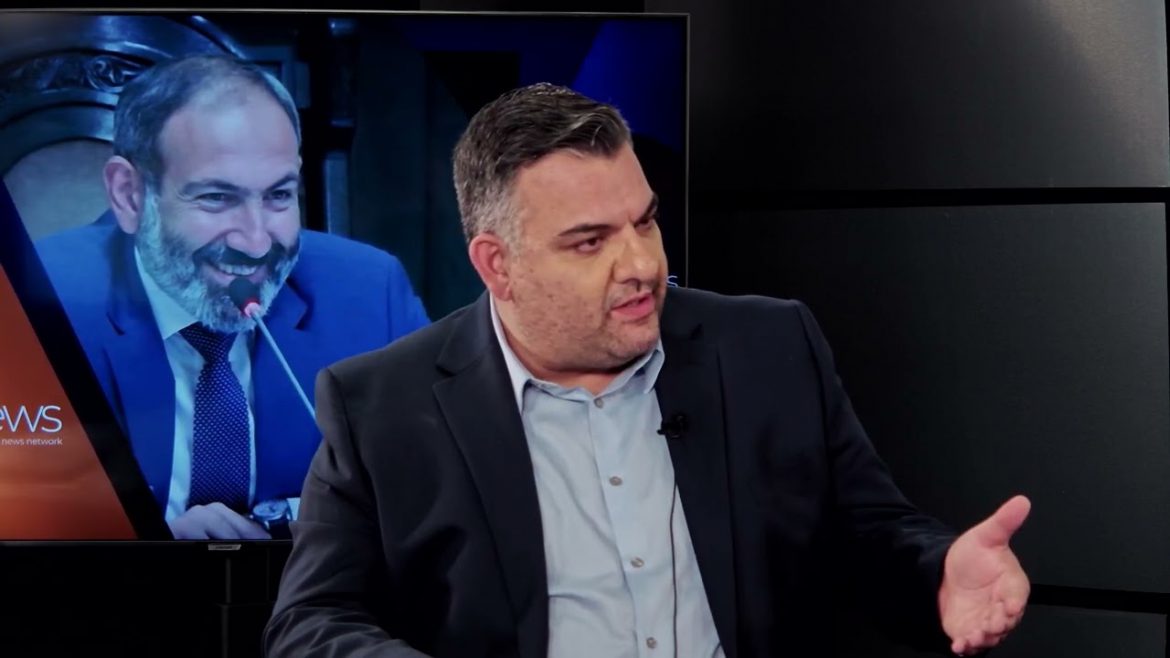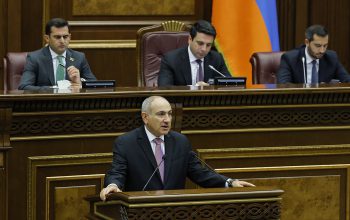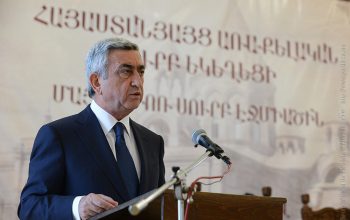By Levon Baronian
The weakening of Armenia’s national security has reached an alarming level, highlighted by recent developments such as the withdrawal of Russian border guards from Armenia’s crucial crossing with Iran. This move, framed by Prime Minister Nikol Pashinyan’s government as a step toward greater sovereignty, is part of a broader and deeply concerning trend of destabilizing decisions made under his leadership. These actions continue to expose Armenia to greater vulnerabilities while alienating key allies and weakening its defense posture at a time of escalating threats.
Pashinyan’s policies, particularly his handling of Armenia’s foreign relations and security alliances, have resulted in disastrous outcomes, most notably the catastrophic loss of Nagorno-Karabakh (Artsakh). The forced exodus of over 100,000 ethnic Armenians following Azerbaijan’s military offensive in September 2023 was a direct consequence of Pashinyan’s failure to effectively negotiate and protect Armenian interests. The Prime Minister’s continued concessions to Azerbaijan have emboldened Baku, which, in turn, has made it clear that peace is only possible if Armenia agrees to further territorial concessions.
The recent agreement to remove Russian troops from the Armenian-Iranian border by January 1, 2025, is part of this concerning trajectory. Pashinyan’s administration has repeatedly claimed that these steps enhance Armenia’s sovereignty, but the reality is starkly different. With tensions escalating in the region, the departure of Russian forces from such a critical location leaves Armenia dangerously exposed. Russian troops, who have long been stationed along Armenia’s borders with Turkey and Iran, acted as a buffer against potential aggression from hostile neighbors. Removing these forces without a clear plan for adequately replacing them with Armenian personnel undermines the nation’s security.
Furthermore, the timing of this withdrawal is telling. It follows Pashinyan’s broader strategy of reorienting Armenia’s foreign policy away from Russia and toward the West, a strategy that has already proven disastrous. While the U.S. and other Western powers have expressed rhetorical support, they have not provided the substantive security guarantees Armenia requires. The recent $20.6 million U.S. aid package is a stark reminder that such aid is insufficient to address the deep-seated security concerns Armenia faces, particularly in light of growing Azerbaijani and Turkish ambitions in the region.
In addition to the foreign policy blunders, Pashinyan’s domestic policies have also left Armenia vulnerable. His government’s handling of peace talks with Azerbaijan, where the Prime Minister has consistently ceded key levers of negotiation without securing reciprocal concessions, has only further destabilized the situation. The failure to include clear border maps in recent agreements has created ambiguity, allowing Azerbaijan to make territorial claims and increasing the likelihood of future conflicts. This level of uncertainty and lack of preparedness has only emboldened Azerbaijan and its allies, threatening Armenia’s territorial integrity.
The erosion of Armenia’s security posture is compounded by the actions of Pashinyan’s government in stifling opposition voices. As seen in recent protests led by Archbishop Bagrat Galstanian, opposition forces have been increasingly vocal in their calls for Pashinyan’s resignation. Galstanian’s movement, which accuses the Prime Minister of complicity in Azerbaijan’s military actions and high treason, has gained traction. Protesters gathered at the Prosecutor-General’s office to demand criminal charges against Pashinyan, a reflection of growing dissatisfaction with his leadership across Armenian society.
The accusations against Pashinyan are not unfounded. His speech at the UN General Assembly in September 2024, where he suggested that Armenia might comply with Azerbaijani demands to alter its constitutional clauses concerning territorial claims, only deepened suspicions that the Prime Minister is willing to sacrifice Armenian sovereignty in exchange for short-term political survival. These concessions, presented as pragmatic solutions, are seen by many as a betrayal of Armenia’s national interests.
Opposition leaders such as Hovannes Khudoyan have rightfully pointed out that Armenia’s constitution obliges the government to defend the Armenian population of Karabakh, a responsibility that Pashinyan has neglected. The absence of strong leadership during the Azerbaijani offensive of September 2023, followed by weak diplomatic engagement, has left Armenia exposed and isolated.
Calls for Pashinyan’s resignation have intensified, and rightly so. His administration’s failure to secure Armenia’s borders, protect its territorial integrity, and defend its people is grounds enough for a change in leadership. The growing opposition movement, led by figures such as Archbishop Galstanian, reflects a broad desire for new leadership that prioritizes Armenia’s security and sovereignty above all else.
Pashinyan’s continued leadership represents a clear and present danger to Armenia’s future. His foreign policy missteps, domestic repression, and inability to safeguard the nation’s interests in the face of Azerbaijani and Turkish aggression have led the country down a perilous path. The situation requires immediate change to prevent further erosion of Armenia’s sovereignty and security.
The solution is clear: Prime Minister Nikol Pashinyan must resign. Only with new leadership, committed to defending Armenia’s national security and rebuilding its alliances, can the country hope to navigate the challenges it faces. The stakes are too high, and the consequences of inaction too severe, for Armenia to continue under its current leadership.




